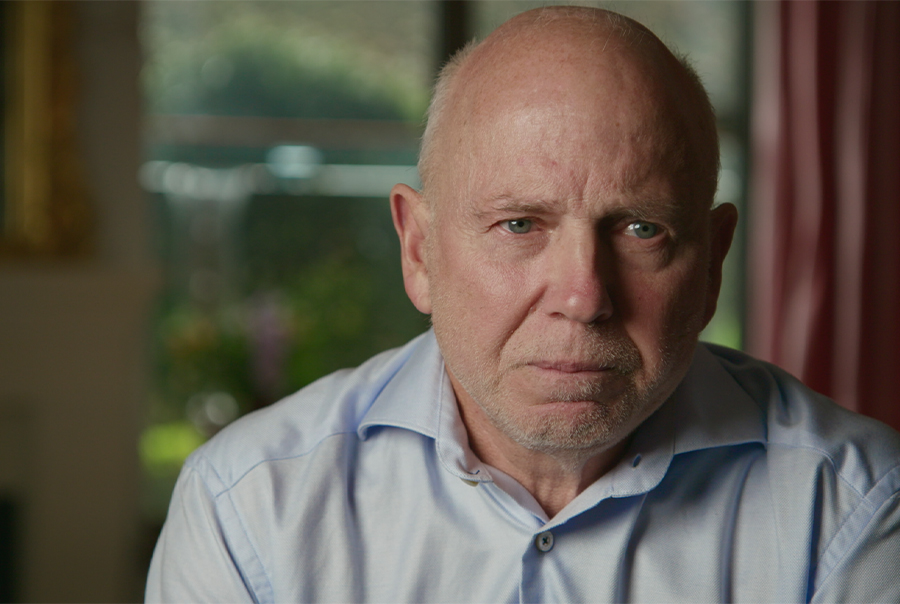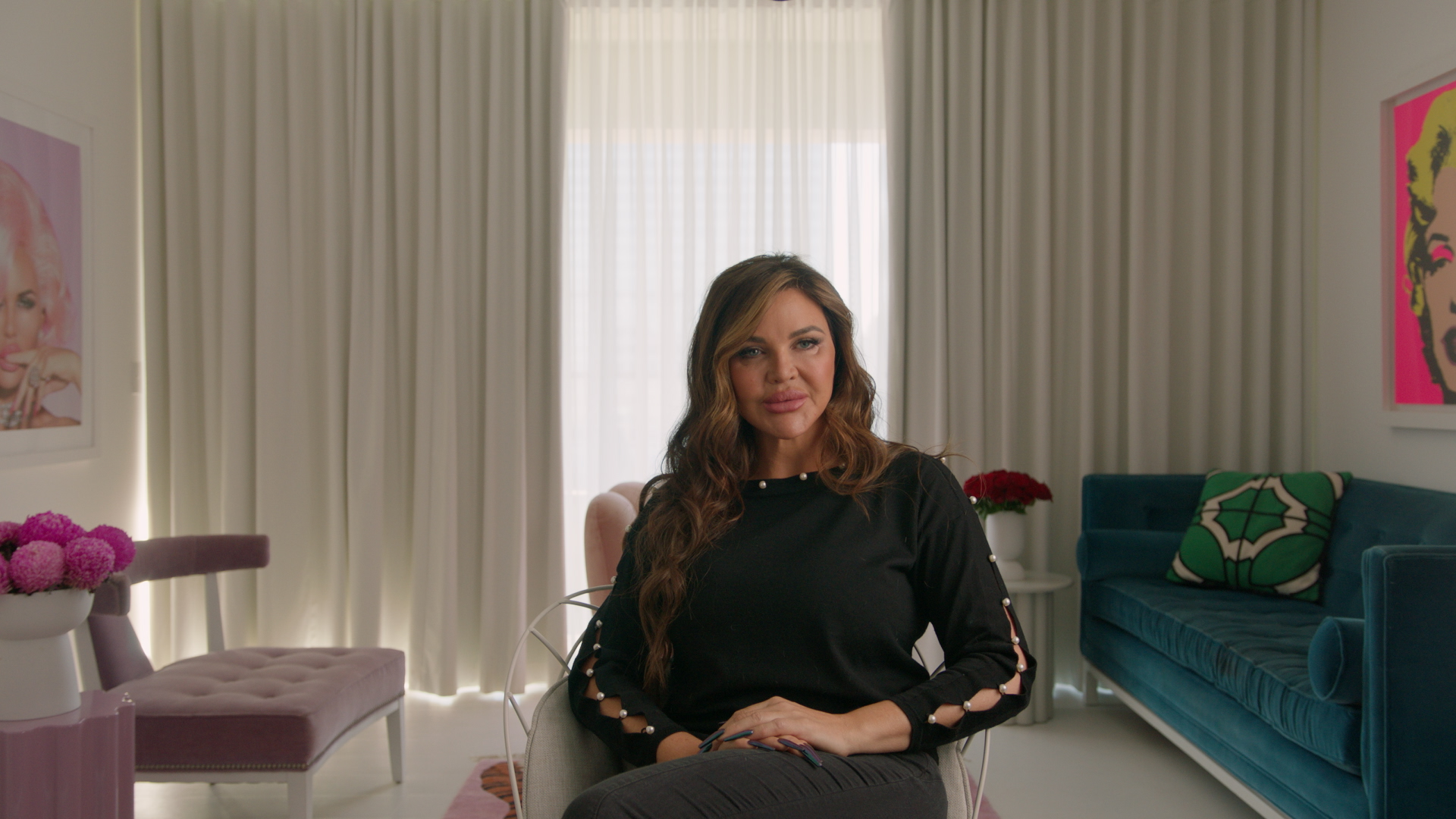

Power, Privilege and Polkinghorne
17th April 2025
Sarah Daniell attended a media screening of the documentary Polk: The Trial of Philip Polkinghorne and interviewed producer Mark McNeill
By Sarah Daniell
Once, while covering a medical conference, I was introduced to a group of ophthalmologists. “You must meet these people,” said the woman to us all, and then looking at me: “They are very important.” Emphasis on the Must and the Very. My initial reflex was to gag, but instead I said to the group, “I think we’re all important, don’t you?” They laughed quietly.
Curious as I was to enquire about Philip Polkinghorne during that brief career chapter, no one among the very important people would ever talk, I was warned, and you could never, ever piss off ophthalmologists in an article. Because they had power, they walked in high places, among the very privileged, among those telling them how important they were. They also had long memories. Good, and possibly important, to know.
Ophthalmologists are the highest paid among the medical profession. They can restore a person’s sight.
They don’t actually require epic levels of sucking up. They already know they are very important or that they do very important work. They are capable, bright, complex, sometimes charming, fallible, and sometimes deeply, deeply flawed. In other words, very human. But very elevated. Emphasis on the very.
Polk: the Trial of Philip Polkinghorne, screening on Three Now, is brilliantly edited by Simon Coldrick, who edited the film Tickled. There are some spectacularly touching and, by contrast, tabloid moments. There’s plenty of Julia Hartley Moore talking about the significance of hedges and crisp decor – and the implication being that they are markers of the privileged.
When I asked Mark McNeill, the producer, what very important people he wanted to interview for the documentary, he said:
“We contacted more than 50 people who worked with Philip or knew him reasonably well. We were not asking them to comment on the trial, we were just asking them to talk about the character of Philip, you know? What was Philip like as a surgeon or what was it like to work with him? Every one of those said no.
“And we would love to have had those people talk to us, but they declined. So I’m not sure what that means. I don’t know what that means.”
We know that McNeill asked Philip Polkinghorn for a post-trial interview. He declined through his lawyer Ron Mansfield who is another very important person. So important that even though there’s no eating allowed in the courtroom, he munched on an apple, because, said the court registrar, he is very important.
Speaking of apples, let’s go back to the garden, to the litany of temptations. The sex, the drugs and the lies. What an unholy mess that ended in devastating tragedy.
Polkinghorne wasn’t talking but has since the documentary aired he said it was tabloid clickbait and that he was misled by the journalist about the context for the interview he did while on bail. In that interview we see the face of the accused-now-freed. It reveals a lot about – if not about the case, or a confession or lack of – his essence. His mouth is disturbing. It squirmed, like wet larvae. At some point he says he’s been a “naughty boy”.
He’s since dissed Madison Ashton, the sex worker with the pneumatic lips that look like boxing gloves relentlessly pounding each other. He was all set to shack up with her. Pauline had moved out and on, he told Madison. He wanted Madison to meet his family at Christmas in Sydney after he’d lied to Pauline that he was on a retreat up north. He paid for Madison’s facelift. Paid the lease on their expensive Sydney love nest. The garden of Eden where they frollicked has lost its lustre. It now resembles a junk yard.
Madison never showed up to testify in court and may well have been a very important person. But she spills the tea something hard in the doco.
The documentary doesn’t make a judgement around innocence or guilt but it clearly lays its cards on the table about who is the most important person. The person who is in no position to talk at all.
In the opening shots Pauline Hanna is sailing. It’s a beautiful day. She deftly tacks in the light breeze. She wears a lifejacket and a sanguine expression. In the background is a man not drowning, waving. It’s Polkinghorne.

There is tenderness in the accounts. From the brother, deeply grieving. From the best friend, determined to see justice. These were the very important people to Pauline. Still there. Love and loyalty intact.
***
Privilege is the domain of the very important. It doesn’t take a very important degree or the ability to restore sight to see how it works every day in society. Those who have privilege can afford the best and most expensive lawyers. Everybody knows.
How much meth is enough to get you a custodial sentence for supply in New Zealand? Apparently not 37 grams worth over $13k. The NZ Police website says that 5 grams – a teaspoon – is enough to warrant a conviction for possession for supply. Polkinghorne was convicted of possession and got 150 hours community service. In the documentary, it’s revealed there were baggies all over the house. In cupboards, drawers on the floor – recently emptied and discarded in the manner of someone very careless or very high or someone “very naughty”.
It’s never revealed in the documentary what that community service was, whether he planted trees or picked up trash. Maybe he cleaned public loos. He had a lot to say about toilets, or specifically toilet seats. The police found evidence of meth in the loo in their Remeura home where Pauline Hanna was found dead. Polkinghorne said the reason he couldn’t be implicated in the meth in the loo situation duh! was because the toilet seat was down when it was discovered. Everyone knows, he said, that men leave the toilet seats up. Polkinghorne is no renaissance man.
Mark McNeill, the producer, was also curious to know what his community service was.
“I’d be interested to know,” he said. “It was an unusual murder trial in that respect. Normally you might, you know, see people who are in gangs or whatever, that kind of stuff, and he is a medical specialist at the top of his game on trial. And so I guess that for some people that raises all kinds of questions about, you know, how the system [works]. Where everyone gets the same treatment.”
Yeah, everybody knows.
“To be fair,” said McNeill, “Philip has admitted and got convicted of meth charges. I don’t think anyone suggested he was supplying, but … certainly must have had quite a habit.”
And everybody knows that it’s now or never
Everybody knows that it’s me or you
And everybody knows that you live forever
When you’ve done a line or two
Everybody knows the deal is rotten
Old Black Joe’s still picking cotton
For your ribbons and bows
And everybody knows
***
As he sat in a living room, with crisp, expensive decor, answering questions from a reporter from the Herald, Polkinghorne talked about his Italian leather belt, used in evidence, and he said, flippantly, that he supposed he should also be blamed for climate change too. Could we actually? For his contribution to carbon emissions from all those lust-missions to and from Sydney? Perhaps he had to plant trees after all.
In that interview, Polkinghorne oscillated between grief stricken widower to stone cold. He listed Pauline’s faults such as his late wife’s “chronic lateness”. According to a phone conversation with Pauline and a family member, he’d also criticised her for, among many things, carrying glasses by their rims. Pauline said she would try and do better.
Everybody knows that you love me baby
Everybody knows that you really do
Everybody knows that you’ve been faithful
Oh, give or take a night or two
Everybody knows you’ve been discreet
But there were so many people you just had to meet
Without your clothes
Everybody knows
I asked Mark McNeill was there a burning need to tell the story with an altruistic motivation, beyond its obvious watchability and guaranteed audience?
“Look, I was fascinated by the story, by the access. By, obviously, Philip’s interview. I was also really excited about the idea of being able to film in the court case, which I’d never done before and I’ve never actually attended a court case.
“But we had a meeting where we got the entire production crew together. One of the things that we talked about is that … it’s quite easy to lose sight of … I was gonna say the victim, but the person who died, you know. There’s a murder trial and there’s a deceased, and it’s quite easy to lose sight of that sometimes. Their family.”
The last images are of Pauline.
Everybody knows that the dice are loaded
Everybody rolls with their fingers crossed
Everybody knows the war is over
Everybody knows the good guys lost
Everybody knows the fight was fixed
The poor stay poor, the rich get rich
That’s how it goes
Everybody knows
Polk: The Trial of Philip Polkinghorne, Three Now.
Lyrics from Everybody Knows, by Leonard Cohen.
